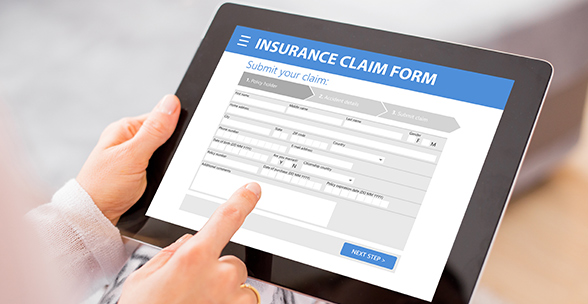4 Questions to Ask Before Billing Telemedicine to Medicare
If you’re a provider rendering telemedicine to Medicare patients, you should know that payers and the Office of Inspector General (OIG) are keeping close tabs on your billing. A recent OIG report found that 31 out of 100 claims in a random sample did not meet Medicare requirements. More specifically,
- 24 claims were unallowable because the beneficiaries received services at non-rural originating sites
- Seven claims were billed by ineligible institutional providers
- Three claims were for services provided to beneficiaries at unauthorized originating sites
- Two claims were for services provided by an unallowable means of communication
- One claim was for non-covered service
- One claim was for services provided by a physician located outside the United States
As with most overpayments, providers sampled for the OIG report were likely reimbursed for the telemedicine services they rendered, but now they’re probably facing recoupment, said Tana Williams,provider educator at Noridian Healthcare Solutions, LLC, who spoke about Medicare requirements for compliant telemedicine billing at Medical Group Management Association’s (MGMA) annual conference held in Boston Sept 30 - Oct 3.
This report should serve as a lesson for anyone providing telemedicine: You might get paid initially, but if an audit reveals you’re non-compliant, you’ll need to repay that money eventually, she said.

The OIG report found that Medicare could have saved approximately $3,699,848 during the audit period if providers had rendered telemedicine services in accordance with Medicare requirements.
Williams urged attendees to consider these four questions before billing telemedicine to Medicare:
1. Is the Right Type of Provider Furnishing the Telemedicine?
The provider must be enrolled in Medicare and operating within his or her scope of practice under state law, Williams said. The following types of providers are permitted to furnish and receive Medicare payment for covered telemedicine services:
- Physicians
- Nurse practitioners
- Physician assistants
- Nurse Midwives
- Clinical nurse specialists
- Certified registered nurse anesthetists
- Clinical psychologists (with the exception of CPT codes 90792, 90833, 90836, and 90838)
- Clinical social workers (with the exception of CPT codes 90792, 90833, 90836, and 90838)
- Registered dietitians or nutrition professionals
2. Is the Right Type of Beneficiary Receiving the Telemedicine?
Williams said Medicare beneficiaries must be located in one of the following sites at the time services are rendered:
- Office of a physician or practitioner
- Hospital
- Critical access hospitals
- Rural health clinic
- Federally-qualified health center
- Hospital-based or CAH-based renal dialysis center (including satellites)
- Skilled nursing facility
- Community mental health center
The site must also be in a county outside of a metropolitan statistical area (as determined by the Census Bureau) or in a rural health professional shortage area located in a rural census tract (as determined by The Health Resources and Services Administration [HRSA]). Williams cited this HRSA tool to determine an originating site’s potential for Medicare telemedicine payment.
3. Do the Provider and Beneficiary have the Right Equipment?
Telemedicine requires interactive telecommunications systems, Williams said. The Code of Federal Regulations (CFR) §410.78(a)(3) defines these systems as “multimedia communications equipment that includes, at a minimum, audio and video equipment permitting two-way, real-time interactive communication between the patient and distant site physician or practitioner.” Phones, faxes, and emails also not need to meet the definition of interactive systems, she said.
The telecommunications systems must also include administrative, technical, and physical safeguards, said Williams. “Skype is not a secure system, and therefore, it cannot be used for this type of venue,” she added.
4. Does the Provider know what Codes to Report?
Only certain Medicare services are eligible for telemedicine, and these services tend to change each year, Williams said. Some examples relevant to providers working in a practice setting include:
- Advance care planning
- Alcohol and/or substance (other than tobacco) abuse structured assessment and intervention services
- Annual depression screening
- Annual wellness visits
- Brief face-to-face behavioral counseling for alcohol misuse
- Comprehensive assessment of and care planning for patients requiring chronic care management
- Face-to-face behavioral counseling for obesity
- Family psychotherapy
- Individual and group medical nutrition therapy
- Individual psychotherapy
- Office or other outpatient visits
- Prolonged services
- Psychoanalysis
- Psychotherapy for crisis
- Smoking cessation services
- Transitional care management services with high medical decision complexity (face-to-face visit within 7 days of discharge)
- Transitional care management services with moderate medical decision complexity (face-to-face visit within 14 days of discharge)
Report these codes with the place of service code 02 for telemedicine, Williams said.
For a complete list of the calendar year 2018 Medicare telemedicine services, visit https://www.cms.gov/Outreach-and-Education/Medicare-Learning-Network-MLN/MLNProducts/downloads/TelehealthSrvcsfctsht.pdf.
---
Learn more about Kareo Telemedicine video visit technology. Request a demo today.





















